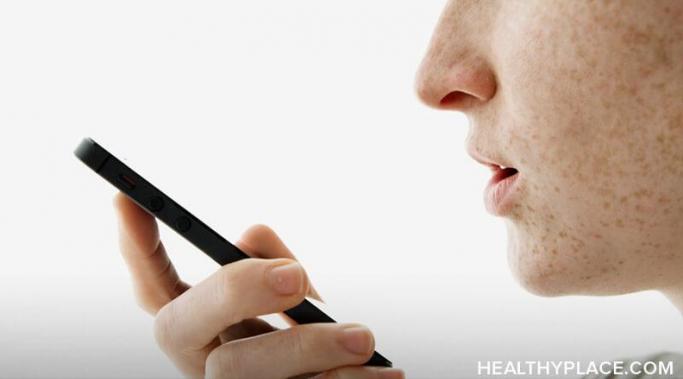Blogs
I realized the other night that I am scared of hypomania. Some of you may remember that a little while ago I suffered a particularly notable hypomania and it was then followed up by a huge, debilitating depression. And last night I realized that while hypomania for me, is not necessarily, always unpleasant, I’m actually scared of hypomania.
Living with mental health issues means there will be days where you feel paralyzed by anxiety and depression. Because comorbid depression and anxiety are so common with different mental illnesses, nearly everyone who struggles with mental health will have to get through a day feeling paralyzed by anxiety and depression. I had one today, and man, it was rough. But, the good news is, I got through it.
People with schizophrenia and schizoaffective disorder are particularly susceptible to suicide, and I am no exception. But I have people in my life to live for, especially my husband and family. I make ways to remind myself of what I have to live for to get me through hard moments. With suicide, one hard moment can be all it takes to end a life. And 10% of people with schizophrenia and another 10% of people with schizoaffective disorder die of suicide.
Stop being too hard on yourself because being too hard on yourself goes hand-in-hand with a low self-esteem. Signs of being too hard on yourself include excessive self-blame, self-criticism, negative self-judgement, self-punishment, and dwelling on your mistakes or flaws. Additionally, you may overlook or discount your positives. It is detrimental to your wellbeing and it’s important to stop it. Stop being too hard on yourself and build your self-esteem.
I recently discovered that my anxiety decreases and my happiness increases when I establish healthy boundaries. In this blog, I want to share with you three, simple steps to help you establish healthy boundaries in your life.
There are many myths about self-injury (SI), but today I'm going to focus on three. These three myths about self-injury contribute largely to the stigma of mental illness, make it difficult for the self-injurer to seek help, and increase the risk of suicide. Each of these myths is common, even among mental health professionals. That's why we need to call them myths and try to educate people who believe them. The more people understand these three myths about self-injury, the better prepared they are to help a person who self-harms, and the easier it will be for the self-injurer to seek help for this problem. We must name and debunk these three self-injury myths.
What are your rights in relationships? Do you feel like others take advantage of you or that they don't listen to you? Do you feel like you wish others would be more appreciative or respect you more? If so, you need to get clear on what your rights are in your relationships, it will help you feel more confident and you will develop healthier connections with others.
I find it annoying to no end when someone thinks they know my binge eating disorder, all by looking at my body, seeing me eat, or reading a blog article about my struggles. It never fails that someone gains a superficial amount of knowledge about me and decides that they know everything there is to know about me and my binge eating disorder. It would be wonderful if we could know all there is to know about a person based off of a few facts about them, but we can't. No one can. No one knows someone else's entire history based off of a few interactions with them.
I've learned lessons from my anxiety, and for that I'm grateful. I was surprised when I realized this. After all, anxiety can be challenging to live with. The symptoms of anxiety affect our total being; indeed, anxiety reaches our thoughts, emotions, physical health, and behaviors. Few, if any, people would choose to live with anxiety. Yet what if we stepped back and examined anxiety from a different perspective? Wouldn't it be nice if there were some sort of greater purpose to it, perhaps life lessons to learn from anxiety? When I stepped back to look at my anxiety differently, I realized that there are many lessons I've learned from anxiety.
For many women1, beginning treatment for an eating disorder can feel like a whirlwind. They may feel caught up in the rush of paperwork, phone calls, and travel arrangements, not to mention their own emotional reactions. Life may feel as if it is moving too fast for them to keep up.
Each woman has her own experience with the beginning phases of entering eating disorders treatment, but many times she finds herself at the front door of her eating disorder treatment center. She has arrived at a metaphorical and literal threshold. So what is next?









